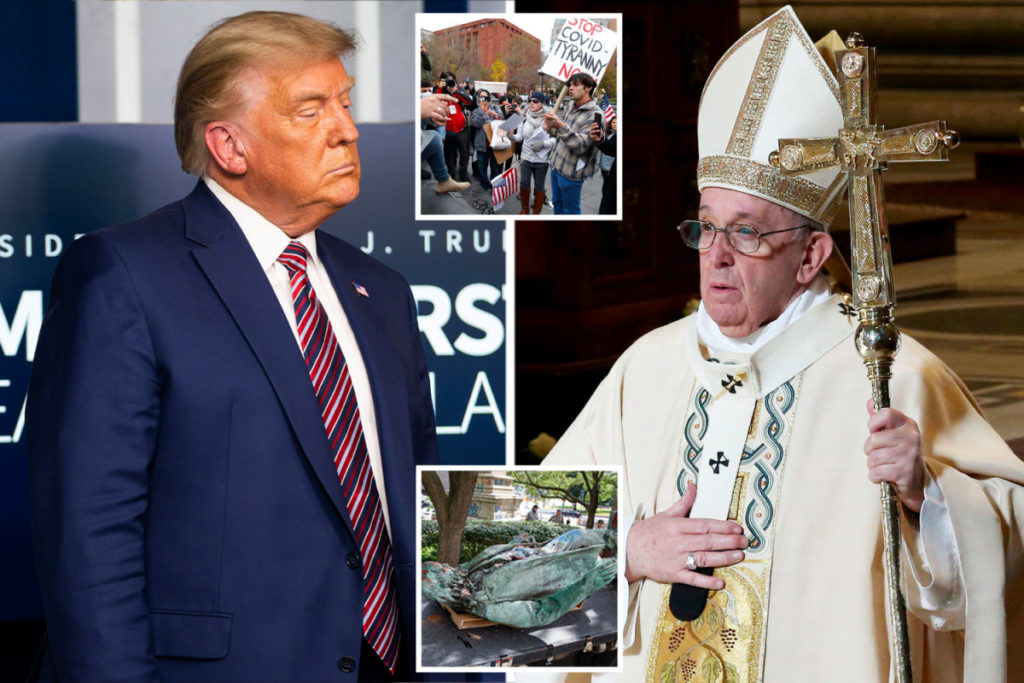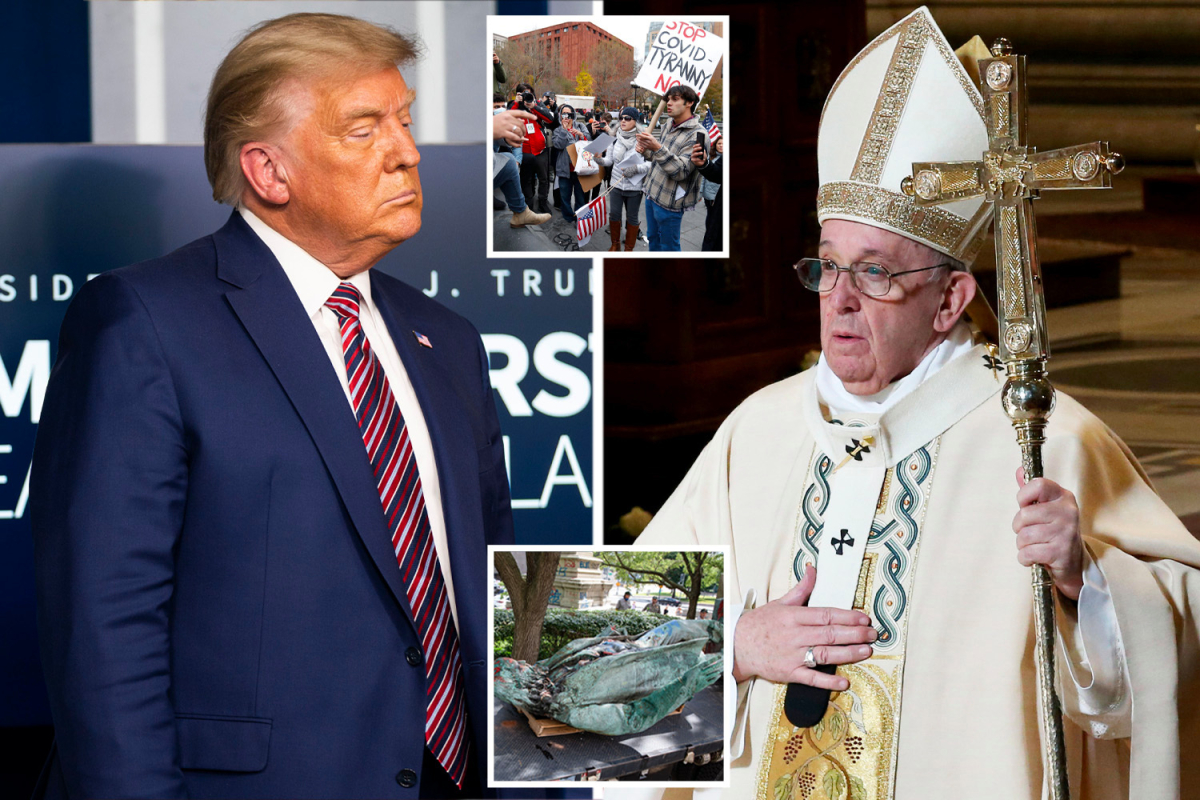
POPE Francis appears to compare President Donald Trump’s rallies to Hitler’s and praised Black Lives Matter reforms in his new book.
In the pope’s 150-page book, set to be released on December 1, he supports demands for racial justice in the wake of Floyd’s police murder last May.
He also blasted Covid skeptics and the news media that spread conspiracies in the book, which was penned during the Vatican’s coronavirus lockdown.
In parts of Let Us Dream, it appears as though Francis is directing a message directly at the United States.
Without identifying the US or Trump by name, Francis singled out Christian-majority countries where nationalist-populist leaders seek to defend Christianity from perceived enemies.
“Today, listening to some of the populist leaders we now have, I am reminded of the 1930s, when some democracies collapsed into dictatorships seemingly overnight,” Francis writes in his book.
“We see it happening again now in rallies where populist leaders excite and harangue crowds, channeling their resentments and hatreds against imagined enemies to distract from the real problems.”
The pope wrote that people fall for this type of rhetoric out of fear – rather than true religious conviction.
Francis also addressed Floyd’s death earlier year, when a white police officer kneeled on the back of his neck for nine minutes, killing him.
His death sparked mass protests and ultimately a greater movement in support of the lives of black people.
“Abuse is a gross violation of human dignity that we cannot allow and which we must continue to struggle against,” Francis wrote, using Floyd’s name.
The pope denounced taking down Confederate statues in the US, describing it as erasing history.
He said a better way is to debate the past through dialogue.
“Amputating history can make us lose our memory, which is one of the few remedies we have against repeating the mistakes of the past,” he wrote.
Francis also touched upon the pandemic and blasted people who have protested lockdown restrictions.
He blasted those people “as if measures that governments must impose for the good of their people constitute some kind of political assault on autonomy or personal freedom!”
Francis accused some in the church and Catholic media of being part of the problem.
“You’ll never find such people protesting the death of George Floyd, or joining a demonstration because there are shantytowns where children lack water or education,” he wrote.
“They turned into a cultural battle what was in truth an effort to ensure the protection of life.”
Francis suggested the world should use the pandemic as a way to reset.
He offered three “moments,” or personal crises of his own life, that gave him the chance to stop, think, and change course.
The first was the respiratory infection that nearly killed him when he was 21 and in his second year at the Buenos Aires diocesan seminary.
After being saved, Francis decided to join the Jesuit religious order.
“I have a sense of how people with the coronavirus feel as they struggle to breathe on ventilators,” Francis wrote.
The second Covid moment was when he moved to Germany in 1986 to work on his thesis and felt such loneliness and isolation he moved back to Argentina without finishing it.
The third moment occurred during the nearly two years he spent in exile in Cordoba, northern Argentina, as penance for his authoritarian-laced reign as head of the Jesuit order in the country.
“I’m sure I did a few good things, but I could be very harsh. In Cordoba, they made me pay and they were right to do so,” he wrote.
But he also revealed that while in Cordoba he read a 37-volume of the “History of the Popes.”
“Once you know that papal history, there’s not that much that goes on in the Vatican Curia and the church today that can shock you,” he wrote.
THE SUN


Leave a Reply
You must be logged in to post a comment.